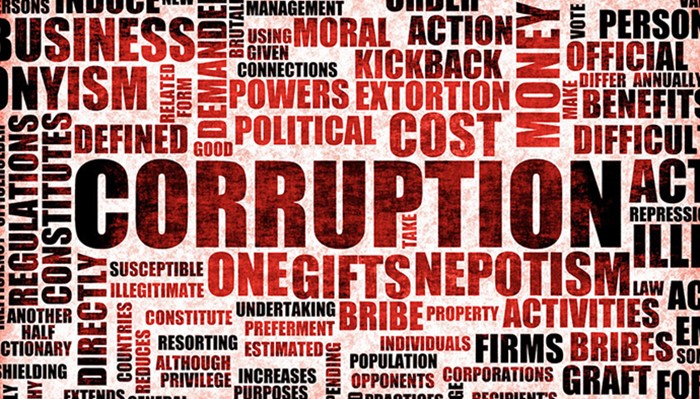A report released on Thursday by the Group of States against Corruption (GRECO), the Council of Europe’s anti-corruption organization, has shown once again Turkey’s failure to fully implement a majority of the group’s anti-corruption recommendations, with its level of compliance remaining “globally unsatisfactory,” the same as in the previous report.
GRECO made public on Thursday its Fourth Interim Compliance Report of the Fourth Evaluation Round on Turkey, which deals with the prevention of corruption of members of parliament, judges and prosecutors. The report was adopted by GRECO at its 94th plenary meeting in Strasbourg June 5-9.
According to the report, Turkey satisfactorily implemented only three of the 22 anti-corruption recommendations and partly implemented nine others, while 10 of them have not been implemented.
#Türkiye: in a new report published today, GRECO notes the absence of progress made in #preventingcorruption with respect to MPs, judges and prosecutors. Türkiye remains subject to GRECO’s non-compliance procedure.https://t.co/GJWWo7ujzr #NoCorruptionYesIntegrity @Turkey_CoE
— GRECO Council of Europe (@CoeGreco) December 7, 2023
GRECO aims to improve the capacity of its members to fight corruption by monitoring their compliance with anti-corruption standards. It helps states to identify deficiencies in national anti-corruption policies, prompting the necessary legislative, institutional and practical reforms.
With respect to members of parliament, none of the recommendations contained in the Fourth Evaluation Round Report have been fully implemented, GRECO said, regretting that no new information was provided as regards the implementation of these recommendations, in particular the state of play of the draft Law on Ethical Conduct for Members of Parliament and the verification of asset declarations by MPs.
Other shortcomings that remain to be addressed, according to GRECO, include the need to enhance the transparency of the legislative process and measures to ensure MPs’ integrity (e.g., a permanent confidential counseling mechanism and operational induction and in-service training on parliamentary ethics).
With regards to the implementation of its recommendations for judges and prosecutors, GRECO said three recommendations have been implemented satisfactorily or dealt with in a satisfactory manner.
The report said that practical guidelines for judges and prosecutors are to supplement the Judicial Ethics Declaration, which had been published by Turkey’s Board of Judges and Prosecutors (HSK) in 2019.
GRECO reiterated that this guidance should take into account the specificities of the distinct functions of judges and prosecutors and provide concrete examples relevant to each profession, preferably in separate documents, adding that some concrete steps, such as defining precise and objective evaluation criteria for the ethical conduct and integrity of judges and prosecutors, could be taken without further delay.
The report also highlighted the need for more substantial changes for GRECO’s recommendations to be fully implemented, notably to limit the role and influence of the executive body on a number of key matters regarding the running of the judiciary.
GRECO also lamented that no measures had been taken so far to change the composition of the HSK, which remains not in line with European standards.
“Transfers of judicial officeholders against their will is also an issue which needs to be urgently addressed,” it added.
The GRECO report has come at a time when there are widespread allegations of corruption and bribery within the Turkish judiciary.
İstanbul Chief Public Prosecutor İsmail Uçar came forward with a letter sent to the HSK in October, exposing corruption in the country’s judicial system.
In the letter sent to the office of the HSK’s secretary-general on Oct. 6, Uçar detailed allegations of bribery, nepotism and other irregularities within the judicial system. The letter also included accusations against Bekir Altun, president of the İstanbul Judicial Commission.
Turkey’s judiciary was already criticized by international bodies and rights groups for taking orders from the executive branch prior to the allegations of corruption.
Turkey has seen an erosion in the rule of law, especially after a failed coup in July 2016, when more than 4,000 judges and prosecutors were removed under the pretext of an anti-coup fight.
The ruling Justice and Development Party (AKP) is accused of replacing the purged judiciary members with young and inexperienced judges and prosecutors who have close links to the AKP.
In a development that confirmed the erosion of the Turkish judiciary, Turkey was ranked 117th among 142 countries in the rule of law index published by the World Justice Project (WJP) in late October, dropping one rank in comparison to last year.

